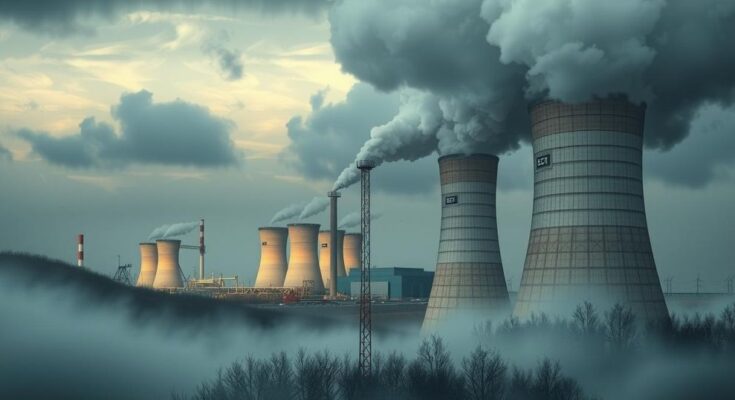IAEA chief Rafael Grossi reported ongoing uranium enrichment in North Korea at Kangson and Yongbyon, marking a clear violation of UN resolutions. Recent activities by Kim Jong-un indicate a strong commitment to nuclear program advancements. The IAEA highlighted operational light water reactors and resumed capability for plutonium processing, raising serious concerns about North Korea’s nuclear ambitions.
The Director General of the International Atomic Energy Agency (IAEA), Rafael Grossi, revealed on Monday that there are observable signs of ongoing uranium enrichment activities at two North Korean locations: Kangson, close to Pyongyang, and Yongbyon, situated north of the capital. He emphasized that any advancement in North Korea’s nuclear capabilities represents a straightforward violation of United Nations Security Council resolutions.
Grossi’s comments were made during the IAEA’s Board of Governors meeting in Vienna, referencing recent activities in North Korea, including a reported inspection by Kim Jong-un of nuclear material production facilities. These developments underscore North Korea’s firm commitment to advancing its nuclear program, despite the efforts of Seoul and Washington aiming for comprehensive denuclearization.
The IAEA has indicated that the uranium enrichment operations at both Kangson and Yongbyon are ongoing, alongside the functioning of a light water reactor (LWR) at Yongbyon. Furthermore, infrastructural enhancements have been detected near the LWR, highlighting the regime’s ongoing nuclear ambitions.
Grossi also noted the resumed operation of a 5-megawatt reactor at Yongbyon, which took place in mid-October after a two-month halt. This shutdown was significant enough to facilitate the refueling process for its upcoming operational cycle, suggesting preparations for new reprocessing activities, which are critical for plutonium production necessary for nuclear weapons.
He referred specifically to North Korea’s state media coverage, which included images of Kim’s visits to a nuclear materials site and a nuclear weapons institute, remarking on the consistencies between the exhibited infrastructure and the layout associated with known enrichment facilities. These observations raise substantial concerns about North Korea’s nuclear developments, particularly the assertion made by Kim regarding the aim to increase weapons-grade material production.
Grossi expressed serious apprehension over the situation: “The undeclared enrichment facilities at both Kangson and Yongbyon, combined with General Secretary Kim’s call for ‘overfulfilling the plan for producing weapons-grade nuclear materials,’ are of serious concern.” He labeled the ongoing nuclear pursuits of North Korea as “deeply regrettable” and urged compliance with UN directives and cooperation with IAEA oversight.
In conclusion, the IAEA will continue to maintain its readiness to verify North Korea’s nuclear initiatives, emphasizing the need for full adherence to obligations under the Nuclear Non-Proliferation Treaty (NPT) to ensure global security and non-proliferation efforts.
The IAEA has confirmed ongoing uranium enrichment activities in North Korea, particularly at the Kangson and Yongbyon sites, indicating a detrimental breach of international accords. The agency continues to urge North Korea to comply with its duties under UN Security Council resolutions, particularly concerning nuclear non-proliferation. The situation remains critical for global diplomatic relations and security efforts.
Original Source: koreajoongangdaily.joins.com




